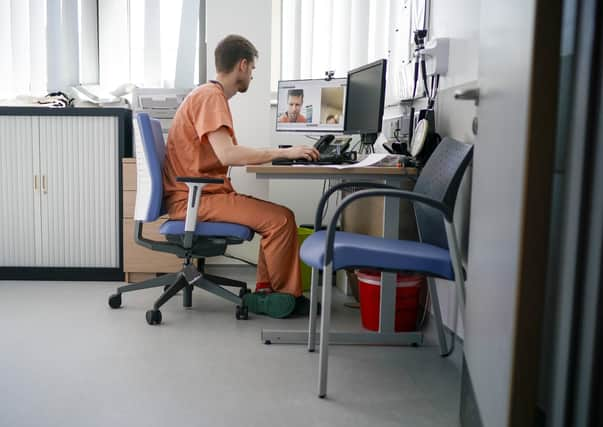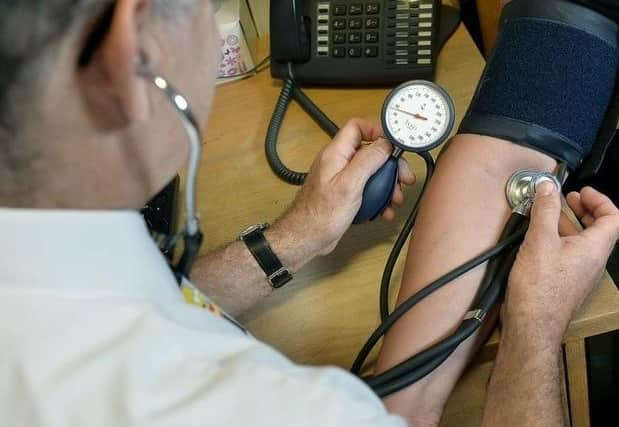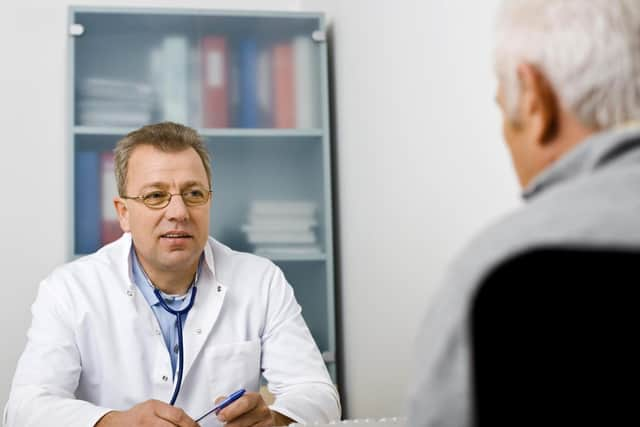Why GPs like me can take great pride in profession’s response to Covid crisis - Mike Holmes


Yet, despite this, I am filled with a sense of pride and optimism for the future general practice in the wake of the level of adaptation I have witnessed first-hand during the pandemic.
Of course, I am immensely saddened to see the number of people who have lost their lives during the pandemic, both from Covid itself, but also from other conditions.
Advertisement
Hide AdAdvertisement
Hide AdBut we will learn from this pandemic and the NHS will have a renewed sense of value. I feel refocused on the reasons why I chose to be a clinician and I’m hopeful that there are positive changes which will support the many issues we face in primary care.


We face workforce shortages – thousands of GPs short of what would be considered ideal. We face lack of investment – working from outdated premises, constantly having to cut services and work harder to deliver the basics. Do we really understand and value General Practice despite the constant rhetoric that it is the ‘cornerstone of the NHS’?
During the pandemic, there has been real transformation. Without doubt, patients remain at the heart of what we do, but the way we have done it has been different.
Again, my starting point is patients. There is, more than ever, a recognition from patients and the public, of the pressure the NHS faces and evidence of real partnership working. People have been fantastic, thoughtful and ready to take even more responsibility for their health and to work with us to manage their health problems.
Advertisement
Hide AdAdvertisement
Hide AdOf course, there are risks associated with this but there has been a real awareness of those risks and how we share them. There has been a remarkable effort to support and protect those vulnerable to the pandemic with a focus on shielding patients, care home patients and those at the end of life.


At Haxby Group, for example, we have individually telephoned our vulnerable patients during lockdown – prioritising those with the greatest need. We have built an understanding of what people want from their care through the use of care plans as well as a clear picture of their home situation and how they like to be contacted in future. This information is vital if we are to provide more holistic care.
We are seeing more of a willingness to develop and introduce innovation to support consultations and to help keep patients and staff safe. Alongside phone consultations, we have seen video used to good effect and an expansion of e-consultation portals.
This has meant more data is available about the demand for GP services and is allowing us to plan our service to better meet our patient’s needs.
Advertisement
Hide AdAdvertisement
Hide AdIt has enabled us to utilise all our staff, particularly those at high risk from Covid who would have been unable to see patients face to face.
Looking to the future, the Digital First agenda is now more evident within General Practice and is here to stay. I believe it will continue to evolve as we better understand its potential and become more expert in its use.
There is now more of a sense of collaboration between different parts of the health and social care sector – General Practice, our hospitals, social care, mental health and our voluntary Sector – all with a desire to help patients at this difficult time, to share learning and to make sure the service is robust.
NHS staff have gone above and beyond; from the amazing staff in our intensive care units to those in our GP surgeries opening over Bank Holidays – when they were asked to and when they weren’t.
Advertisement
Hide AdAdvertisement
Hide AdI feel privileged to be a General Practitioner working in a practice that cares for almost 100,000 people across North and East Yorkshire in some of the most deprived parts of our region.
At the heart of our profession are our patients. They are why we do it. To support people to make the right decisions for them about their health and to navigate what is an increasingly complex system.
I am filled with optimism for the future of General Practice – we have learned so much from this pandemic and are boosted by an NHS with a renewed sense of value. I feel refocused on the reasons why I chose to be a clinician and ready to face the ongoing challenges from Covid and whatever else comes next.
Professor Mike Holmes is a GP Partner at the York, Scarborough and Hull-based Haxby Group, and Vice Chair of the Royal College of General Practitioners.
Support The Yorkshire Post and become a subscriber today.
Advertisement
Hide AdAdvertisement
Hide AdYour subscription will help us to continue to bring quality news to the people of Yorkshire. In return, you’ll see fewer ads on site, get free access to our app and receive exclusive members-only offers.
So, please - if you can - pay for our work. Just £5 per month is the starting point. If you think that which we are trying to achieve is worth more, you can pay us what you think we are worth. By doing so, you will be investing in something that is becoming increasingly rare. Independent journalism that cares less about right and left and more about right and wrong. Journalism you can trust.
Thank you
James Mitchinson
Comment Guidelines
National World encourages reader discussion on our stories. User feedback, insights and back-and-forth exchanges add a rich layer of context to reporting. Please review our Community Guidelines before commenting.